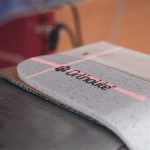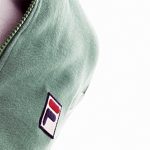The interim CEO of Easton-Bell Sports Holdings, Tim Mayhew reassured analysts and investors last week that the company has plenty of liquidity, is compliant with its loan covenants, and only replaced its CEO to position the company for a prosperous future. Mayhew said the boards decision to replace Tony Palma as CEO with former Reebok CEO Paul Harrington was a proactive move to prepare for the companys expanding opportunities.
“The company is poised to branch into new areas, such as apparel and international markets, which has been performing quite well for us and which has boundless opportunities for us,” Mayhew said. “Frankly (we hired Harrington) to develop a more meaningful relationship with the various sports leagues that we do business with.”
While sales rose 13.4% in 2007, most of that, or roughly $68 million of the $85.6 million increase, came from the inclusion of Easton Sports, which was acquired in March 2006. After adding Eastons first quarter sales to the 2006 results, that growth shrank to 4.4%. That increase was below the growth rates the two businesses were achieving prior to the their merger.
Sales grew 8.4% to $155.1 million in the fourth quarter ended December 29, 2007. However, net losses for the quarter declined by 5.3% to $5.7 million. Gross margins, meanwhile, shrank by 370 basis points to 31.4% of net sales.
“There is no doubt that we underperformed our expectations,” Mayhew said of the companys performance for the entire year.
Still, Mayhew said he was encouraged by good snow and well-received product launches in the first few months of 2008. In particular, he pointed to Riddells Revolution IQ football helmet and new shoulder pads, Giro eyewear, motorcycle helmets and Easton bicycle wheels.
While declining to provide earnings guidance, CFO Mike Tripp said the company expected meaningful costs savings to kick in over the next two years as it implements a multi-million dollar SAP implantation that will improve sourcing, forecasting and other operations.
A look at the companys fiscal year 2007 sales shows the inclusion of Easton, rather than organic growth, driving sales.
Team Sports net sales increased 19.8% to $416.5 million, as compared to 2006. But the bulk of that growth, or $68.7 million, came from the acquired Easton business and only $5.8 million came organically from increased sales of football shoulder pads, apparel sales and reconditioning services.
Team Sports sales by sport and their percentage increase over 2006 were: baseball/softball, up 40.8% to $151.1 million; ice hockey, up 19.4% to $112.3 million; football, up 4% to $75.8 million and other/licensing, up 5.1% to $77.4 million. Gross profits in the team sports business reached 38.4% of net sales, up 390 basis points.
In Action Sports, net sales increased 5.8% to $308.1 million, including Eastons cycling business and the acquisition of Cyclo/Shanghai Cyclo. Without Easton, Action Sports sales would have risen 3.9%.
Sales by sport and their percentage increase over 2006 were: cycling helmets, up 13.8% to $133.8 million; snow helmets, down 11.3% to $28.7 million; powersports, up .3% to $16.3 million; cycling components, up 23.7% to $35.8 million; fitness accessories, down 14.8% to $15.2 million; and cycling accessories, down 2.6% to $68.3 million.
Gross margins in the action sports business fell 310 basis points to 28.9% of net sales for the year, primarily due to a change in sales mix and increased distribution costs, product costs, freight costs and inventory write-offs.
Mayhew attributed a 9% increase in SG&A, or $14 million worth, to product launches, the addition of a corporate counsel, CFO and other headquarters staff and compliance costs. The latter included $3.2 million the company invested to tie together Riddell, Bell and Eastons IT systems to ensure compliance with Sarbanes-Oxley reporting requirements. Those expenditures will produce benefits down the road, including better forecasting, Mayhew said.
Tripp attributed a decline in 2007 gross margins to soft baseball and softball sales and lower sales of higher-margin snow sports gear, as well as rising transportation costs and inventory write-offs.
Mayhew and Tripp acknowledged “one or two cases” of specialty retailers falling behind on their payments. On the flip side, management said Easton-Bell Holdings was able to extend its own payment terms with some vendors.
>>>Interesting they find a CEO with public company experience as they implement SOX compliance…















